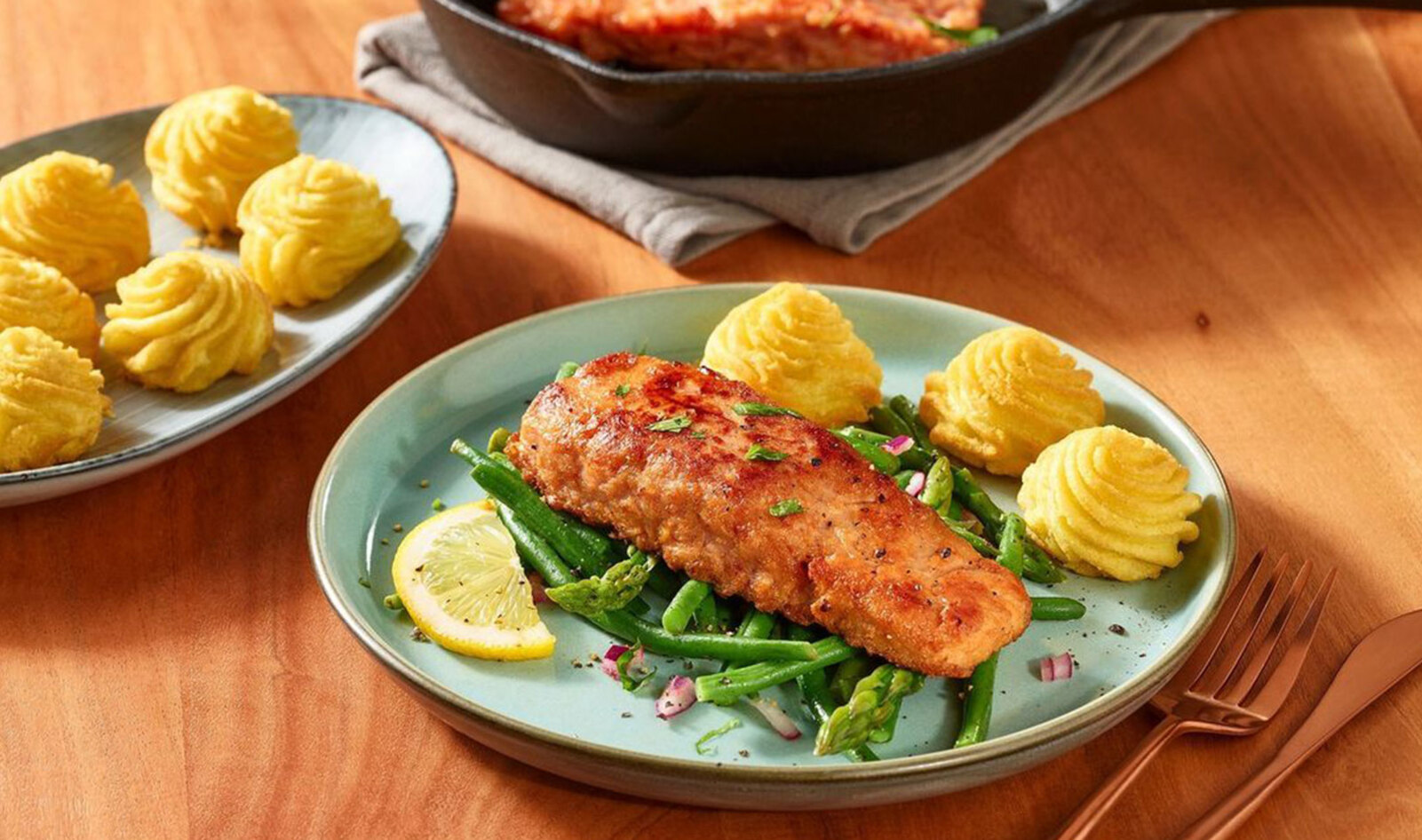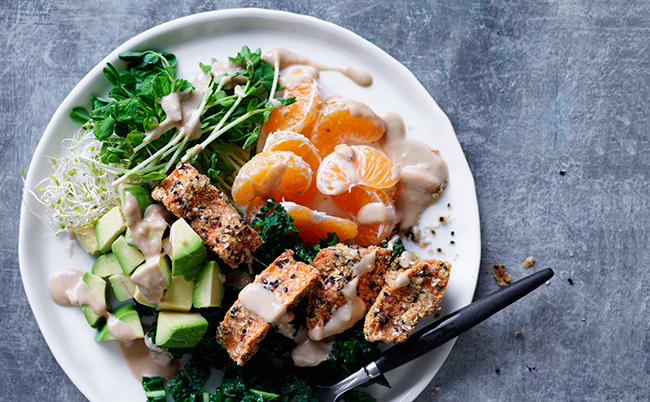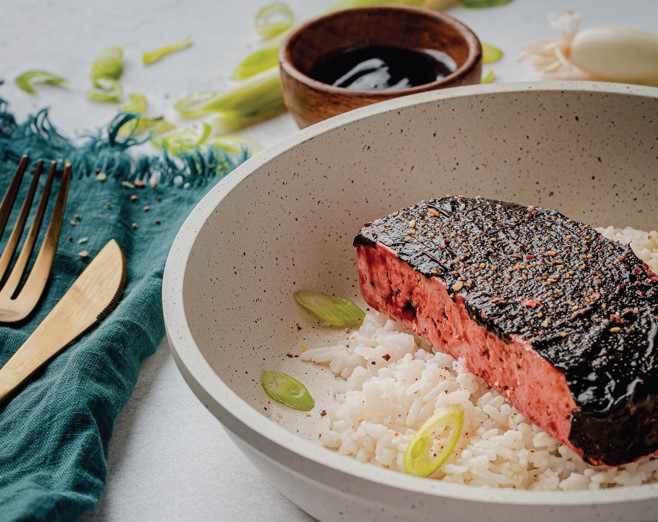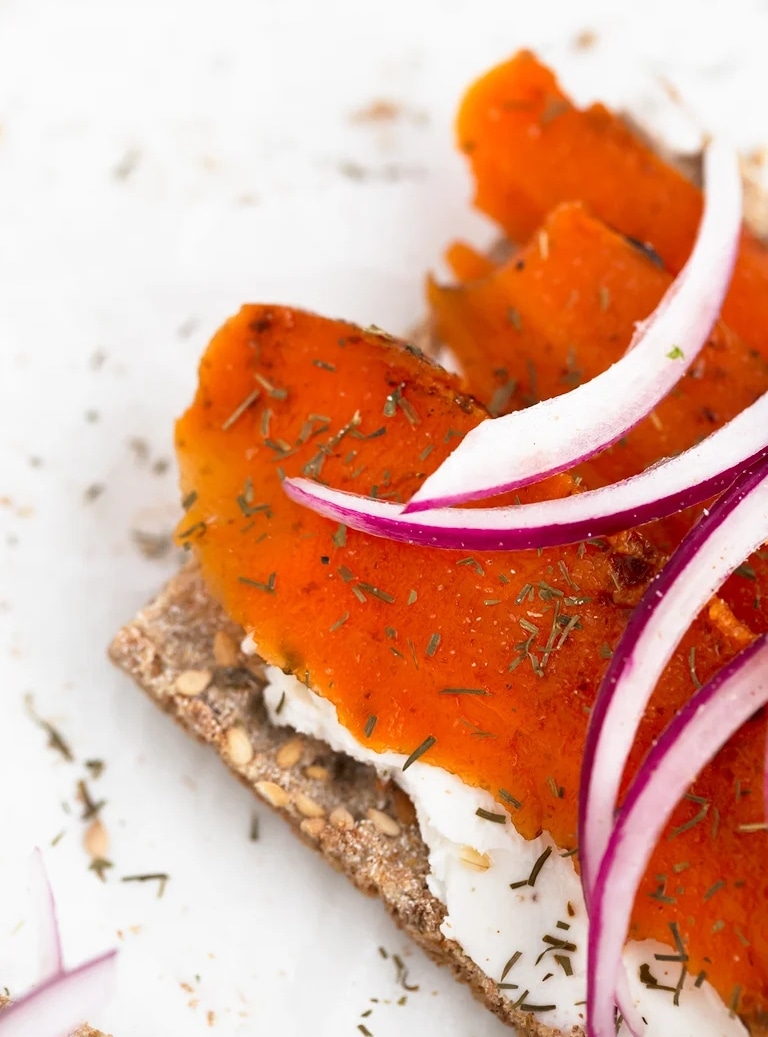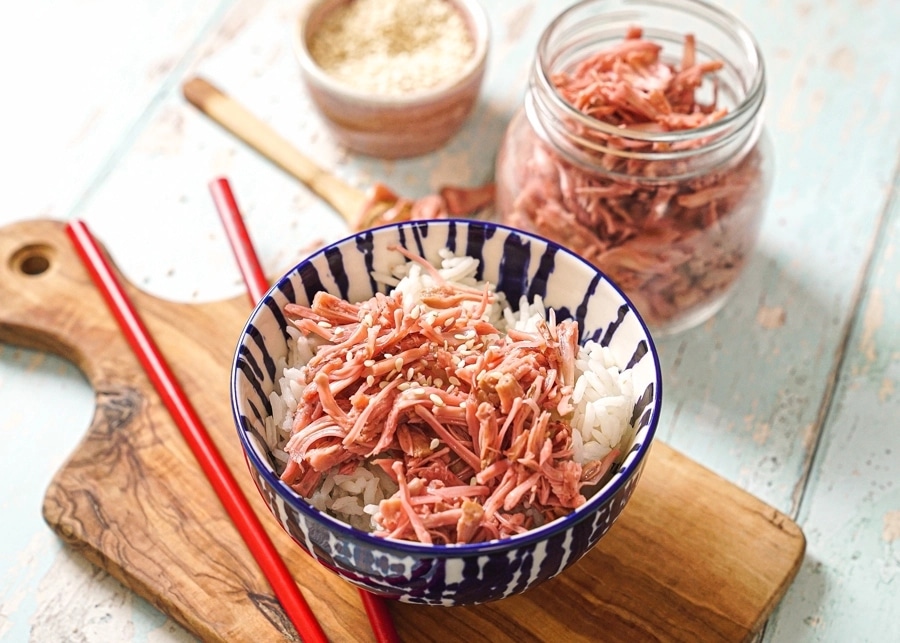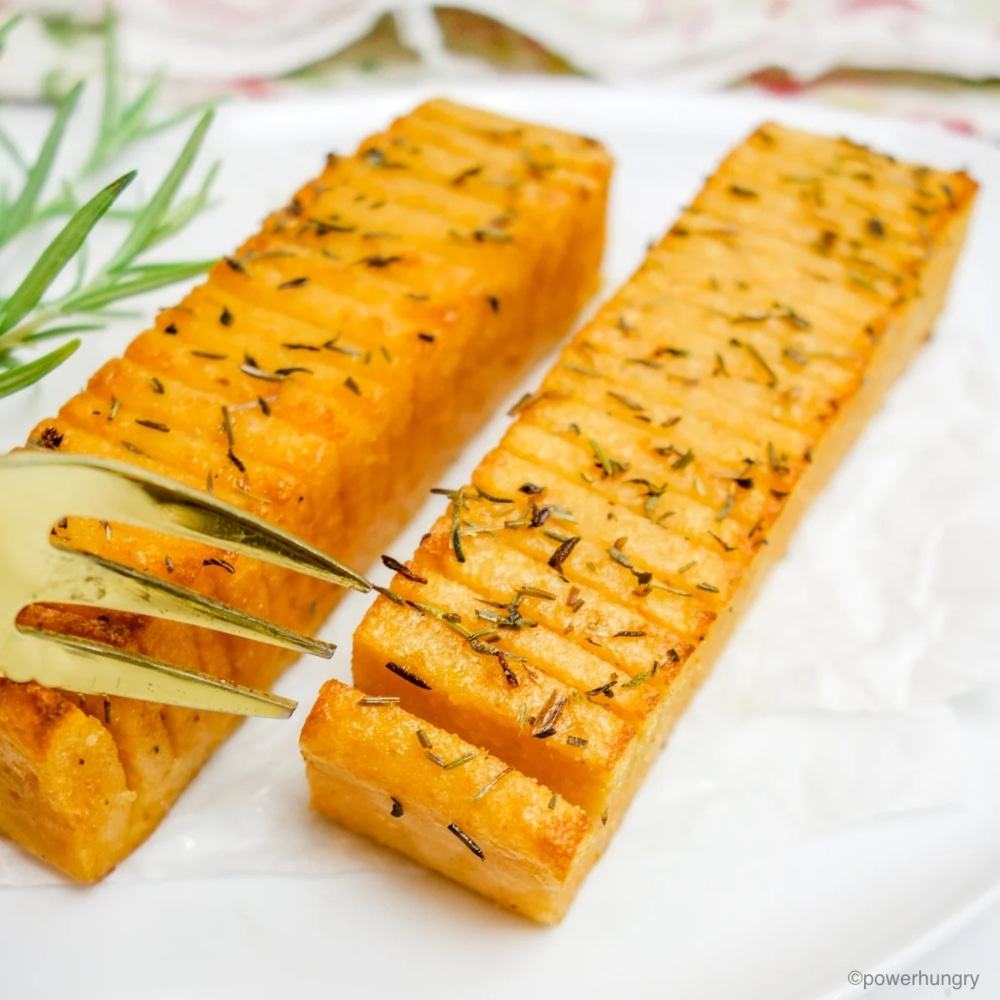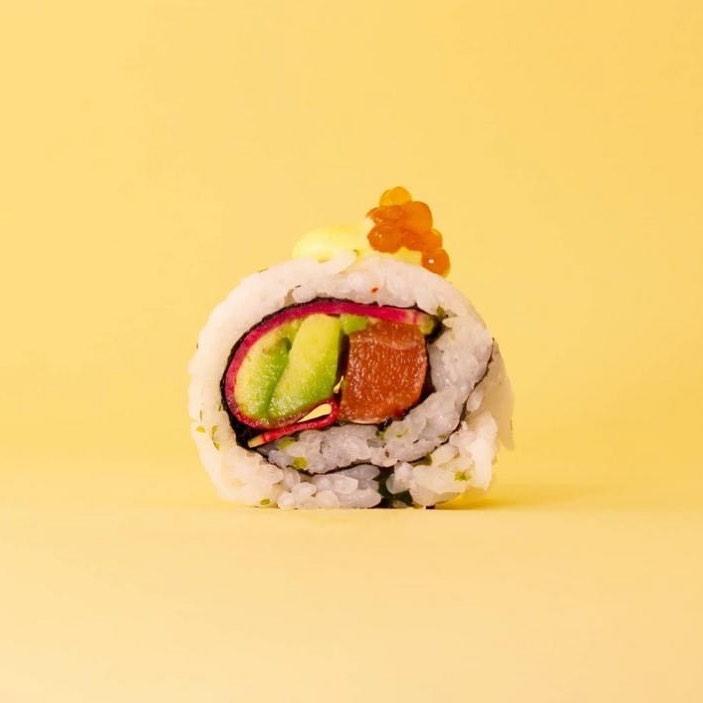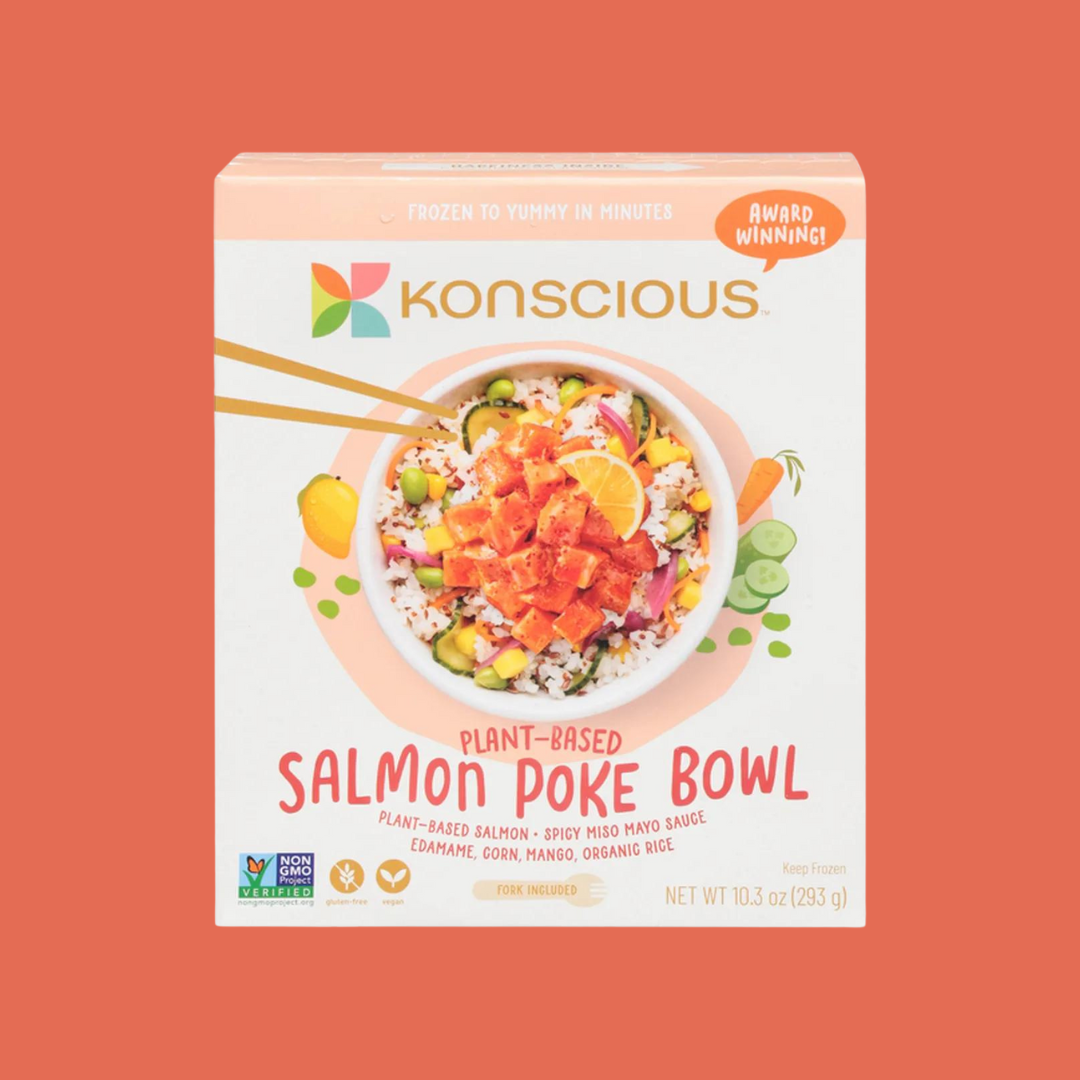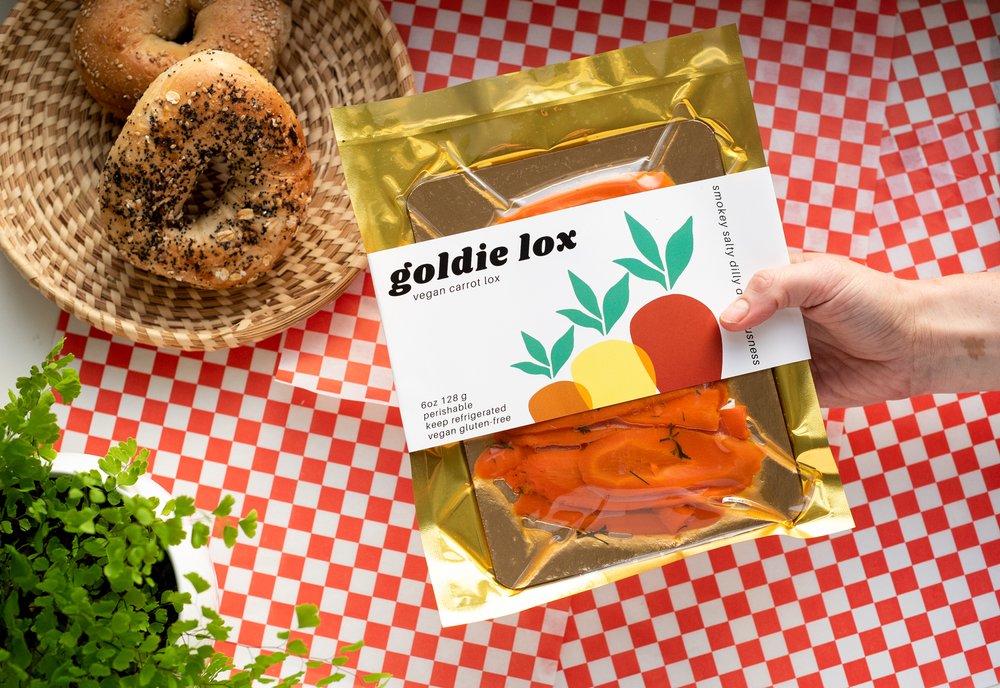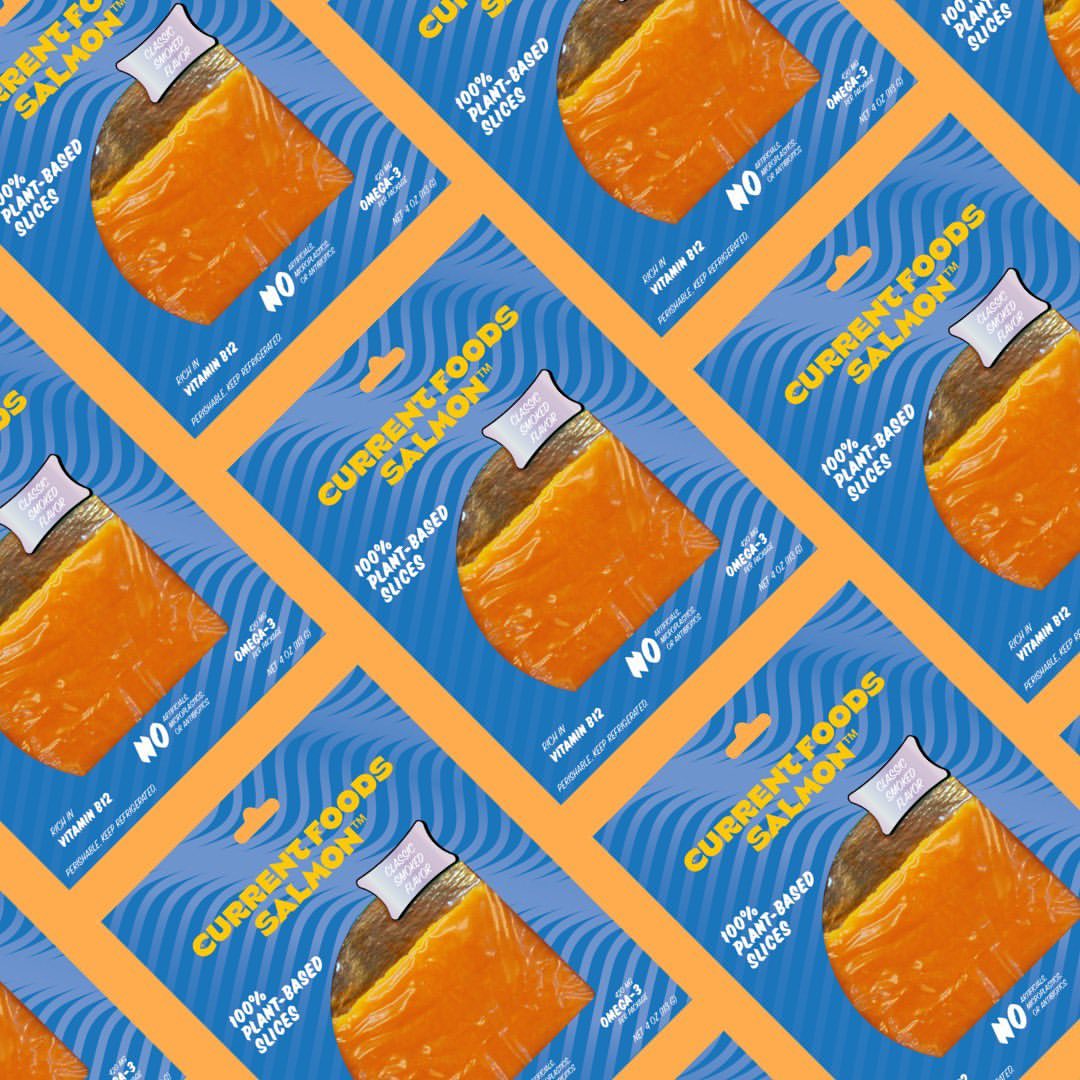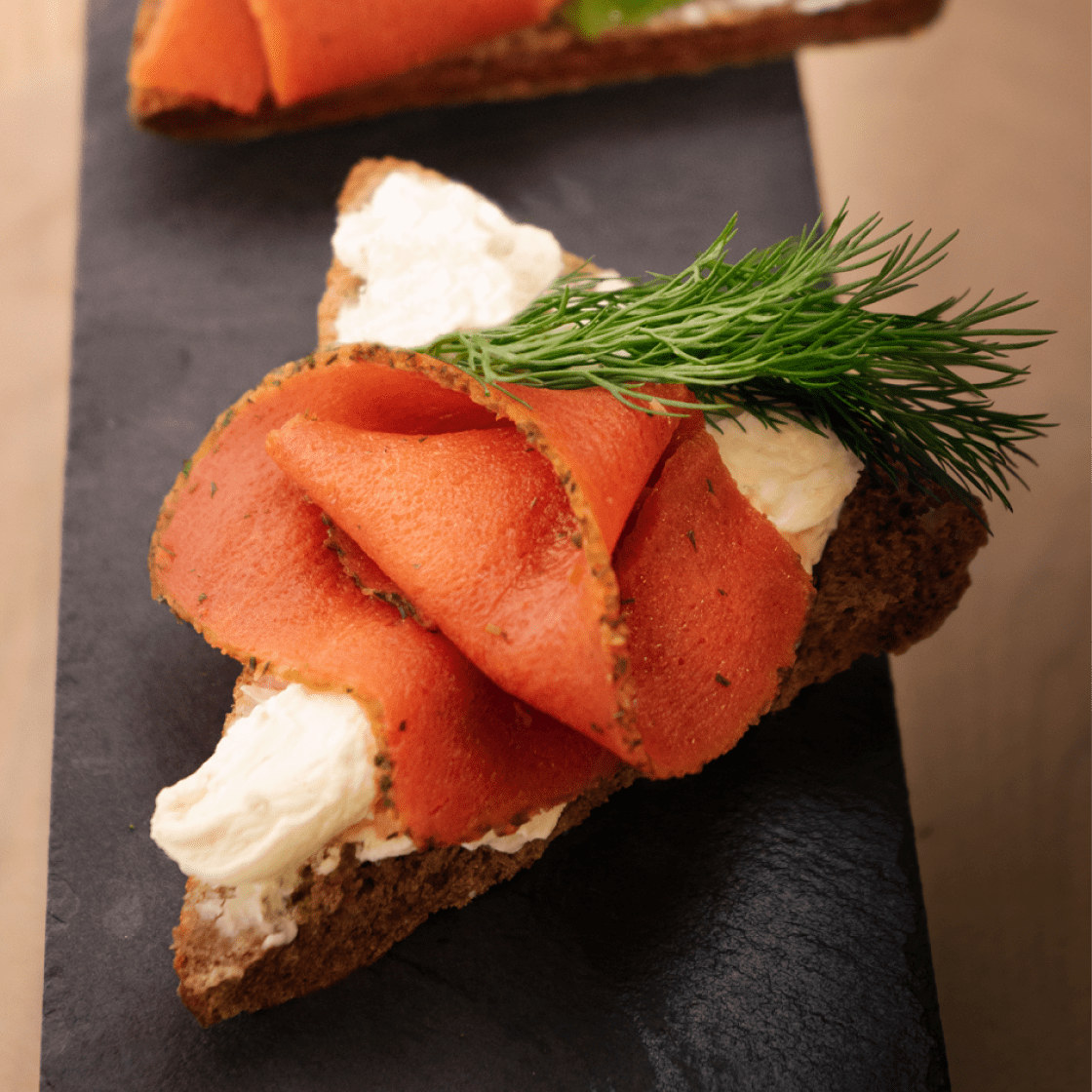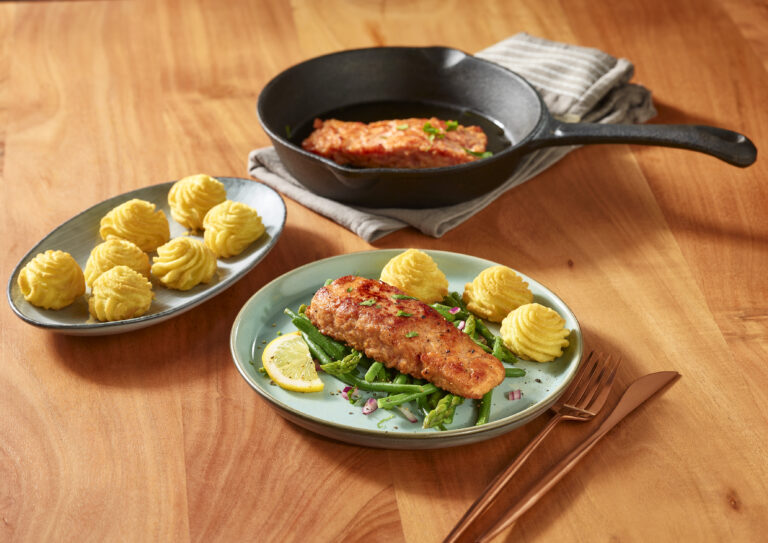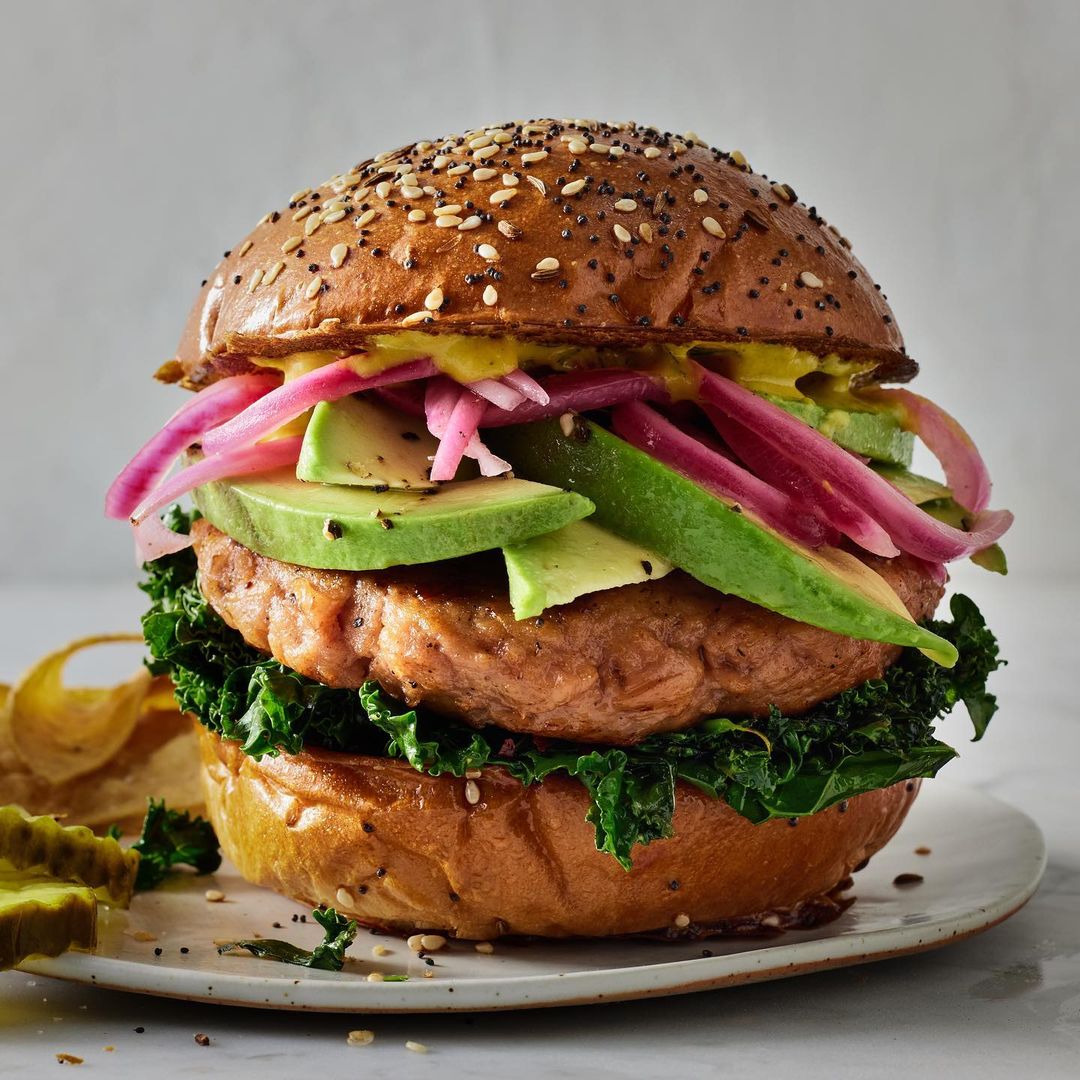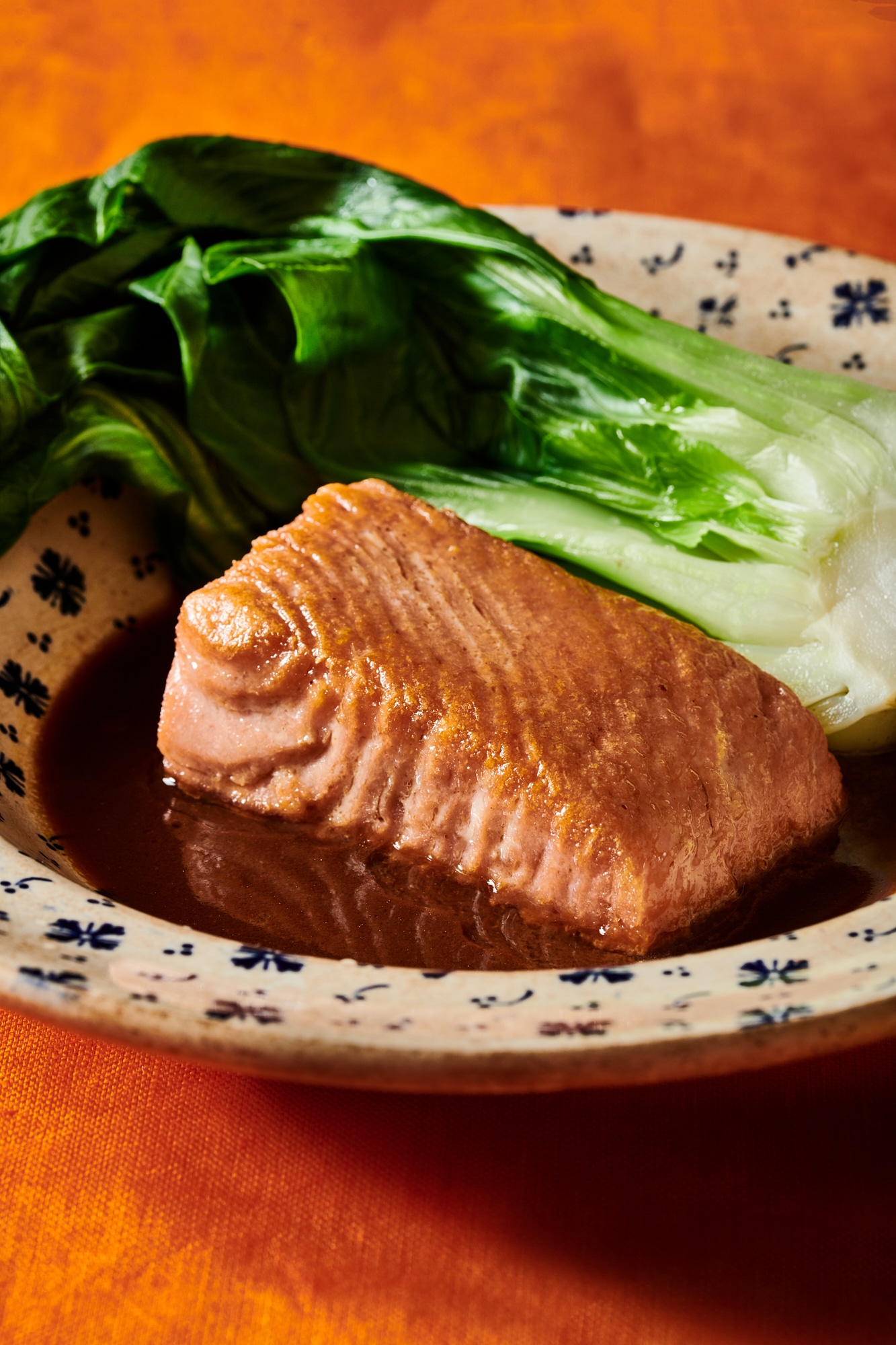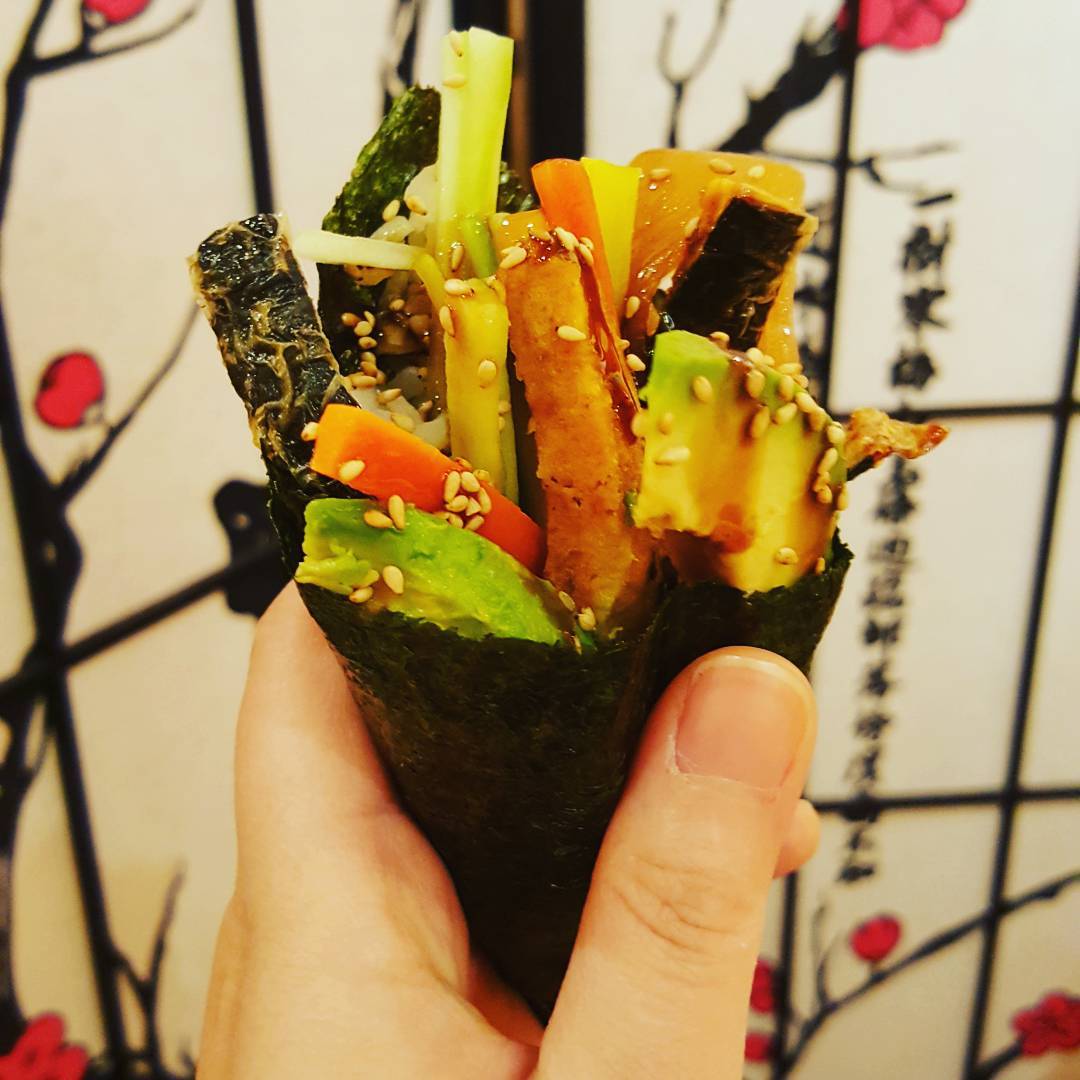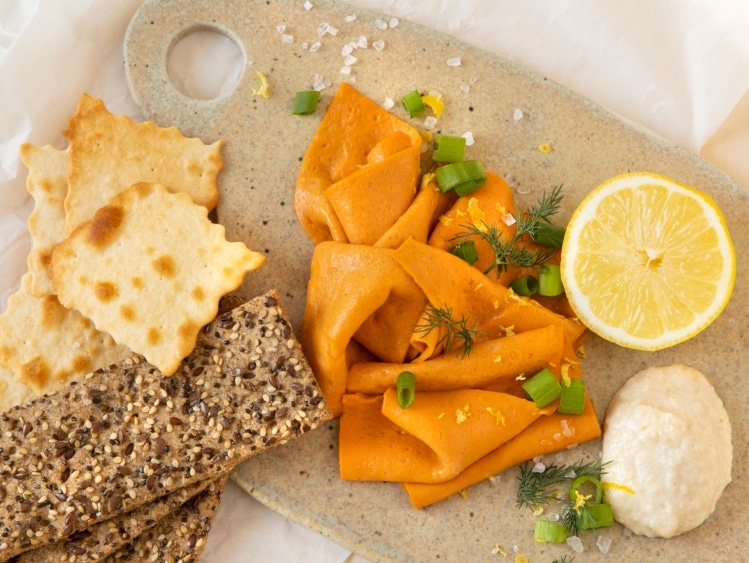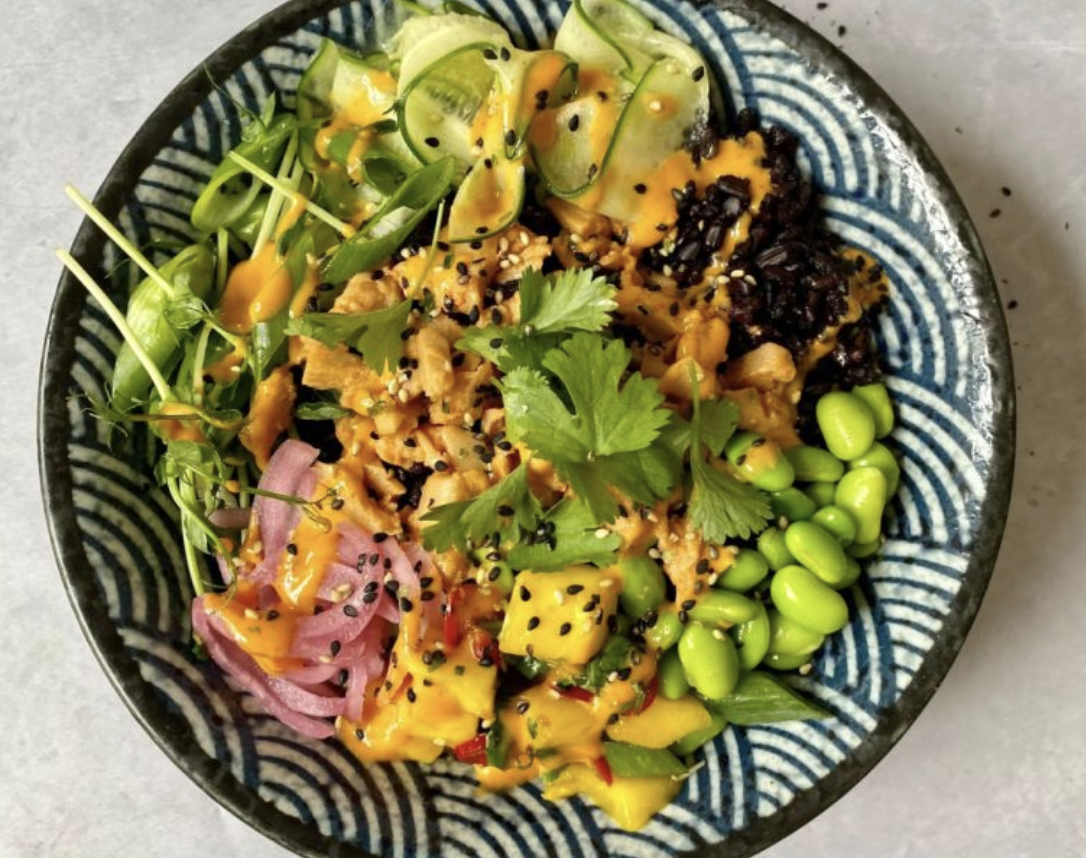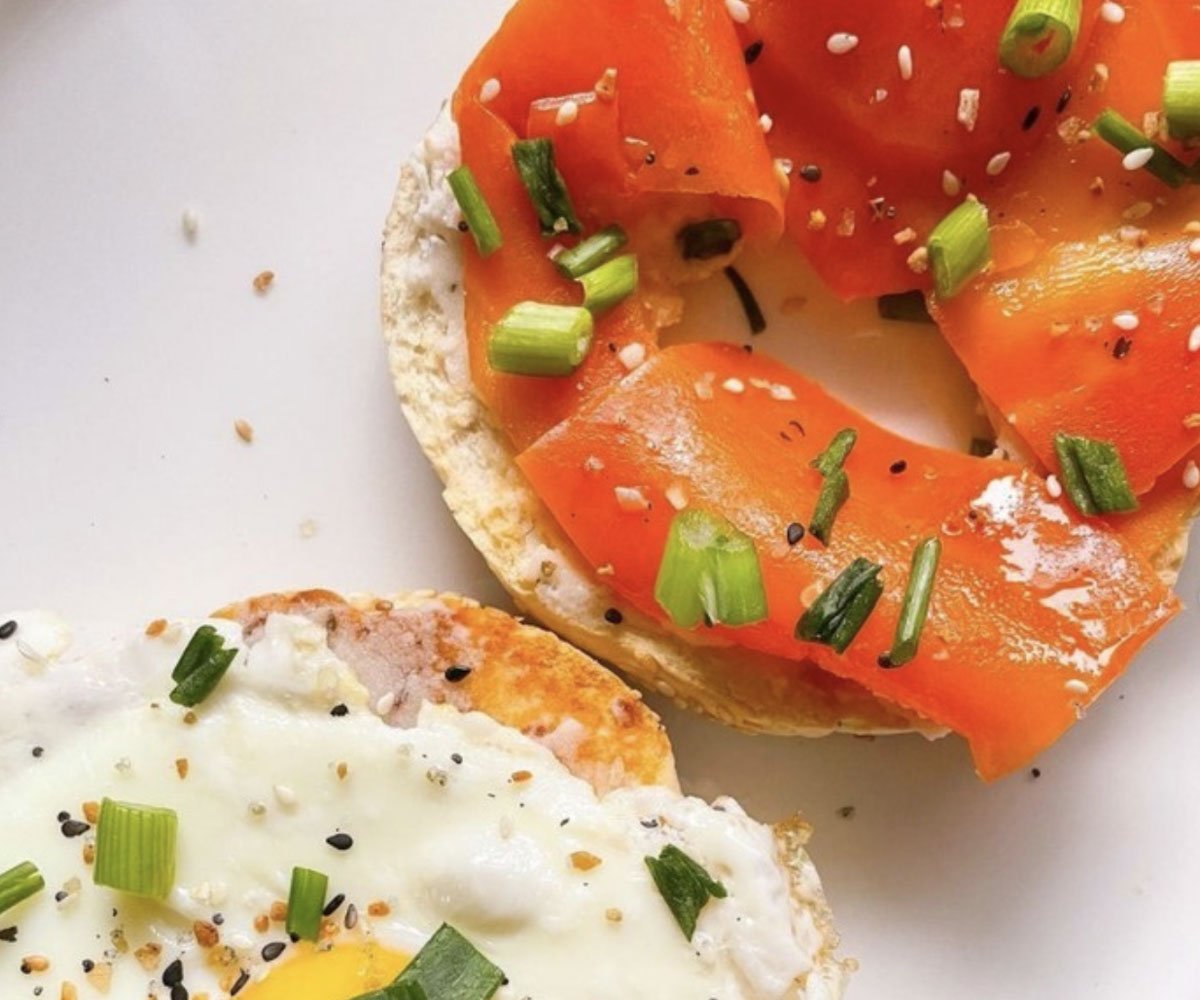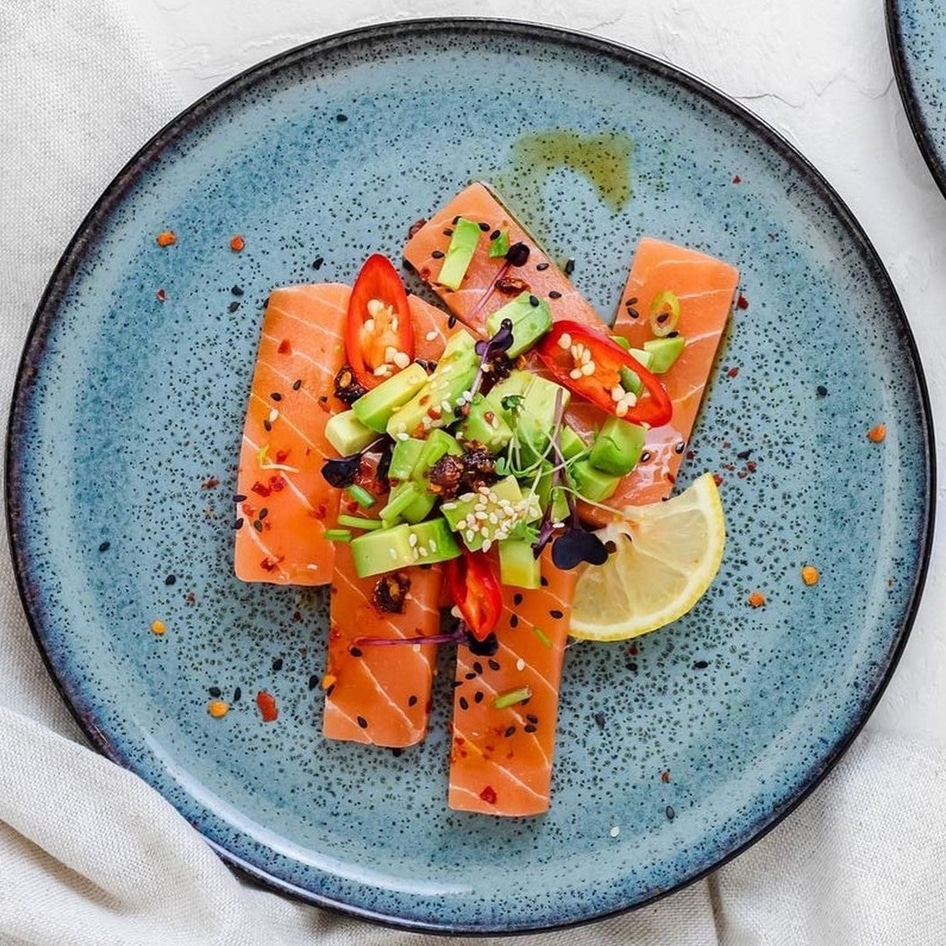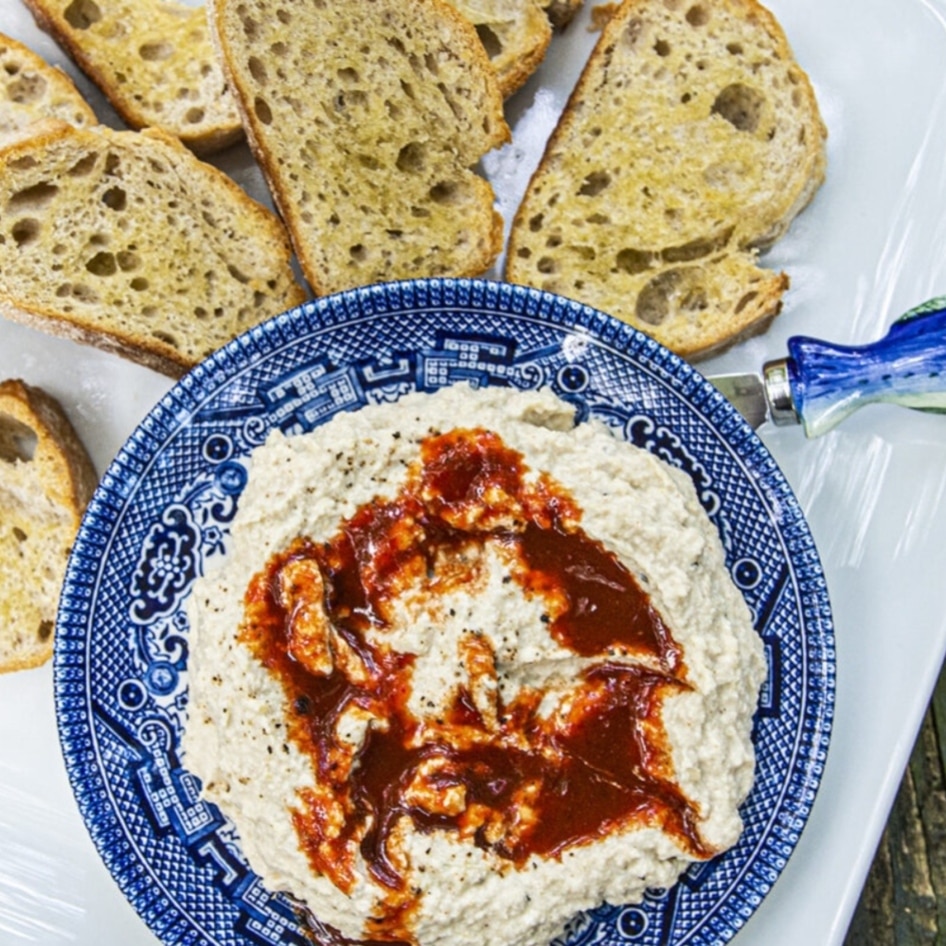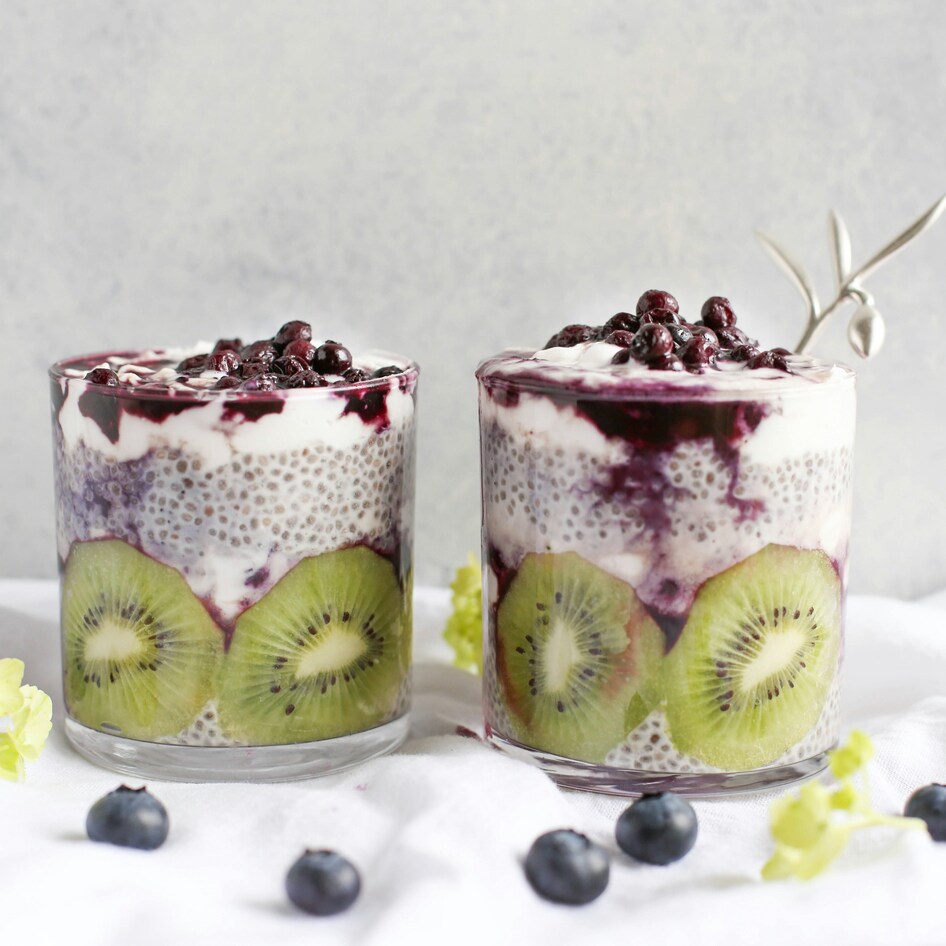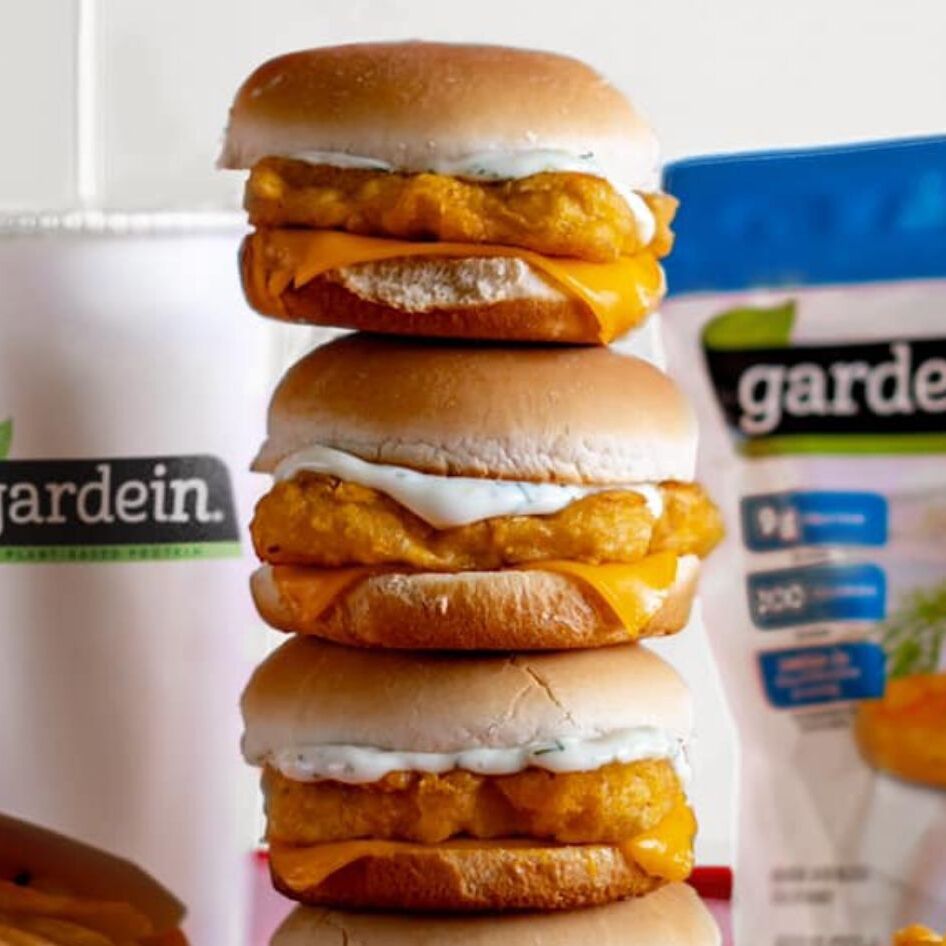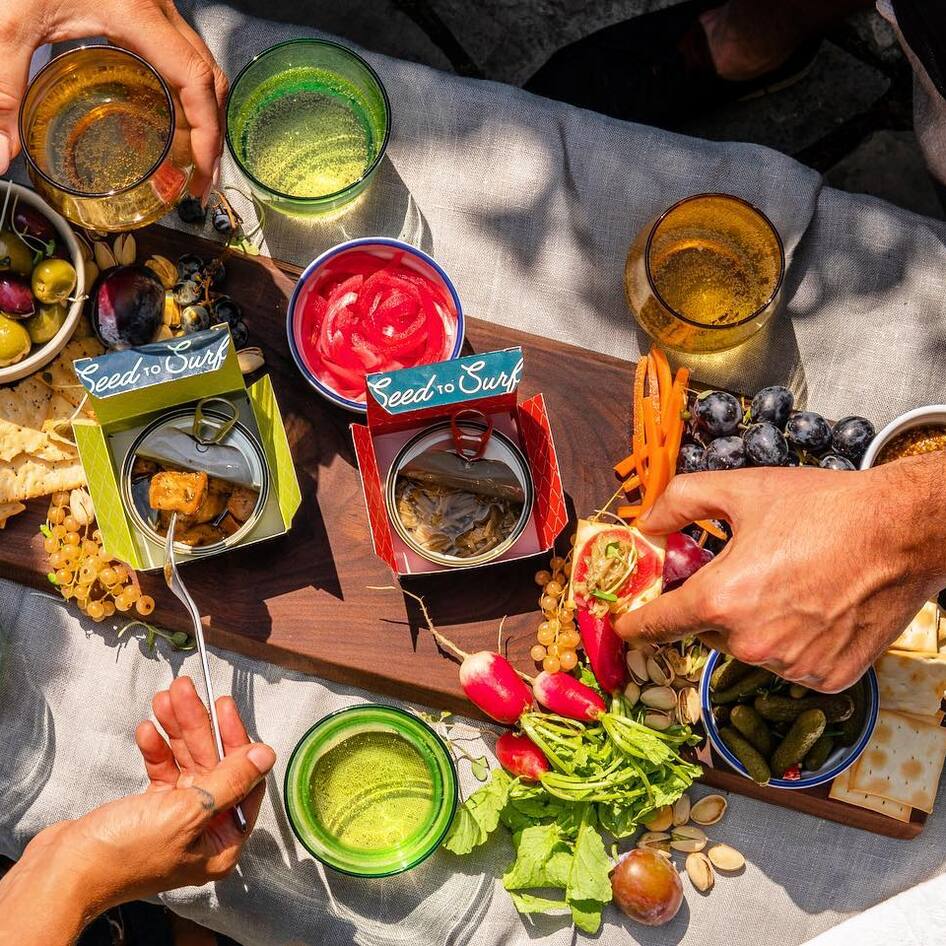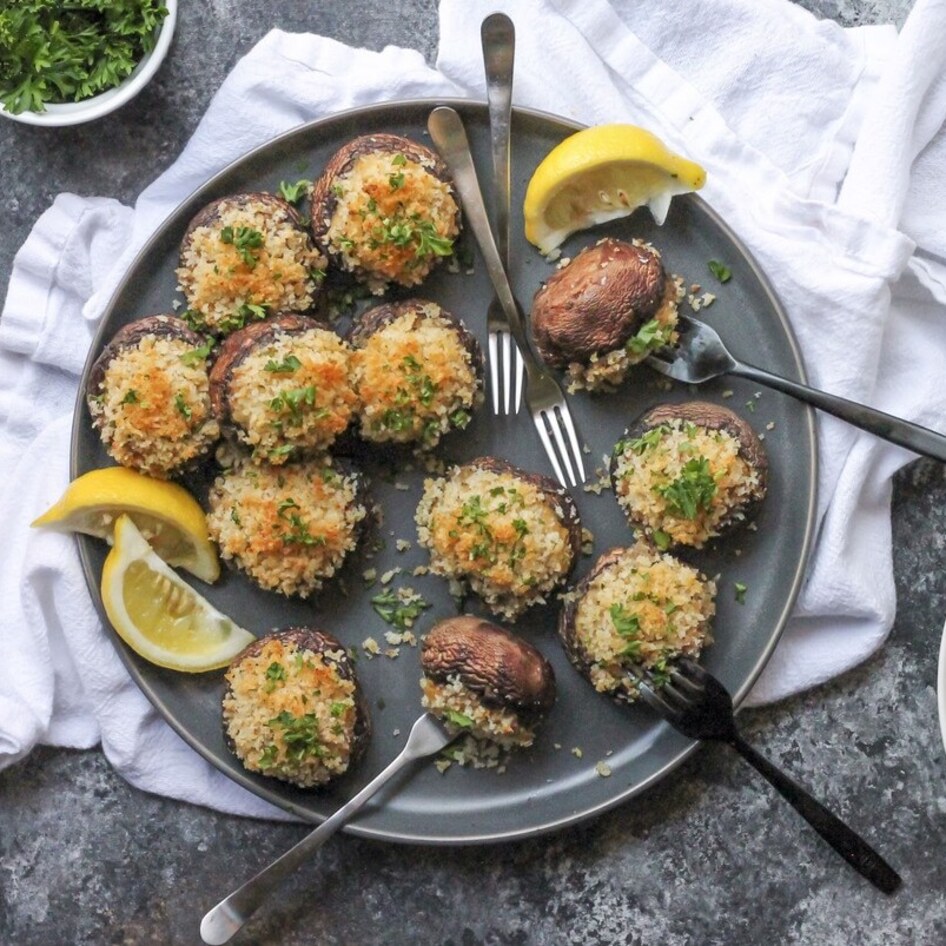Perhaps one of the most interesting things about Atlantic salmon, a common species of ray-finned fish, is that they always return home to give birth. They can spend years out in the ocean, but when it’s time to spawn new life, they will return (with an impressive degree of accuracy) to the very same river, and sometimes even the same stream, that they themselves were born in. According to the United States Geological Survey, this isn’t just a habit, but it’s because they know it’s a safe, good place to spawn, and finding anything else would be a waste of time.
There are plenty of other interesting facts about salmon. They can jump at least 12 feet in the air, plus they can live in both saltwater and freshwater. But here’s another fish fact: in the European Union, up to 58 million were slaughtered for food in 2017, according to estimates by Fish Count. And in the US, salmon is the second-most consumed species of fish after shrimp.
The growing appetite for salmon raises ethical questions, and it’s also not sustainable either. Here’s why it might be time to consider giving up the popular fish for one of the many delicious vegan alternatives on the market.
Is salmon fishing harmful?
Most of the salmon that land on plates around the world won’t have spent their lives swimming back and forth between a stream, as they have evolved to do. Instead, they will have been raised on a farm—roughly 70 percent of salmon eaten globally have been farmed.
But research suggests that this has a detrimental impact on the ocean. For one, all of these farmed fish have to eat. And in the wild, they would eat other fish. This means that about 18 million tons of wild fish a year are used in fish farm feed, which is contributing to fish population depletion and the ongoing overfishing problem. According to the World Bank, almost 90 percent of global marine stocks are now overfished.
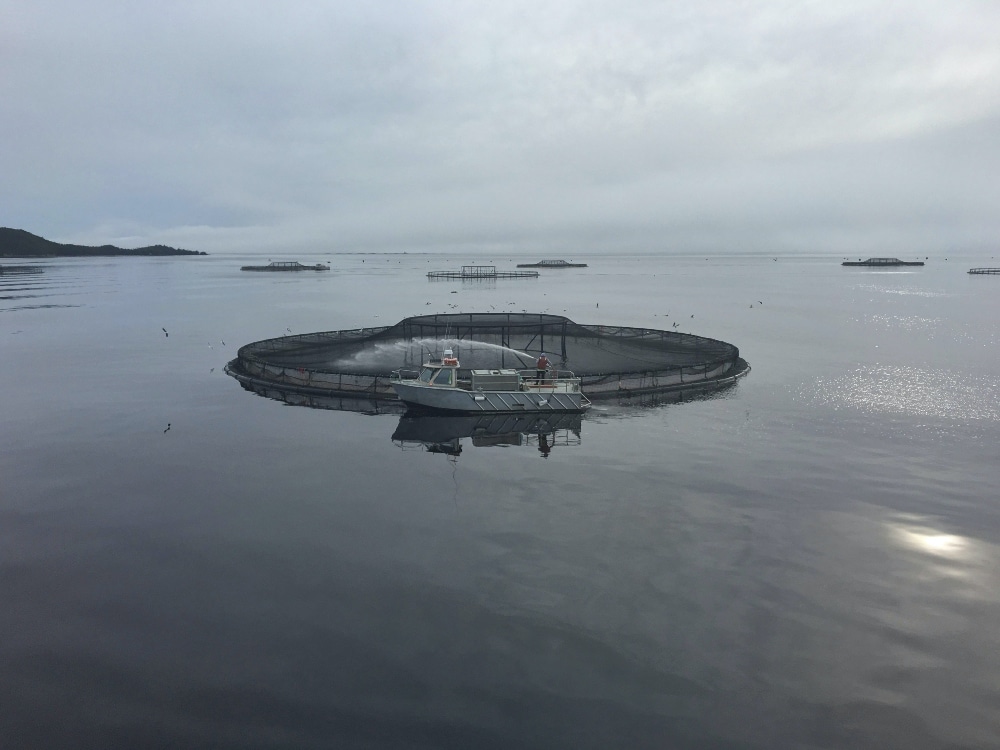 Unsplash
Unsplash
There are significant welfare issues in salmon farming, too. Farmed salmon are particularly vulnerable to sea lice, which are parasites that feed on their skin and blood. In January 2023, there were reports that deaths on Scottish fish farms had doubled because of lice, but also because of poor welfare standards and jellyfish blooms.
“Deaths in fish pens have reached record levels for a number of reasons, including a sharp rise in infectious diseases among the fish who are packed into unnaturally overcrowded cages, as well as poor gill health and rough treatments to remove lice from the infested waters,” Abigail Penny, the director of Animal Equality UK, told the Guardian.
“As the industry grows, so do these issues,” she continued. “We must take back the power and boycott farmed fish—it’s the only way that we can begin to curb this ever-worsening problem.”
What is vegan salmon?
Boycotting salmon is easier than ever because the vegan seafood market is constantly growing. In 2021, it was valued at more than $42 million, but as more brands offering sustainable, realistic, and fish-free alternatives hit the market, by 2031, it’s set to climb to around $1.3 billion.
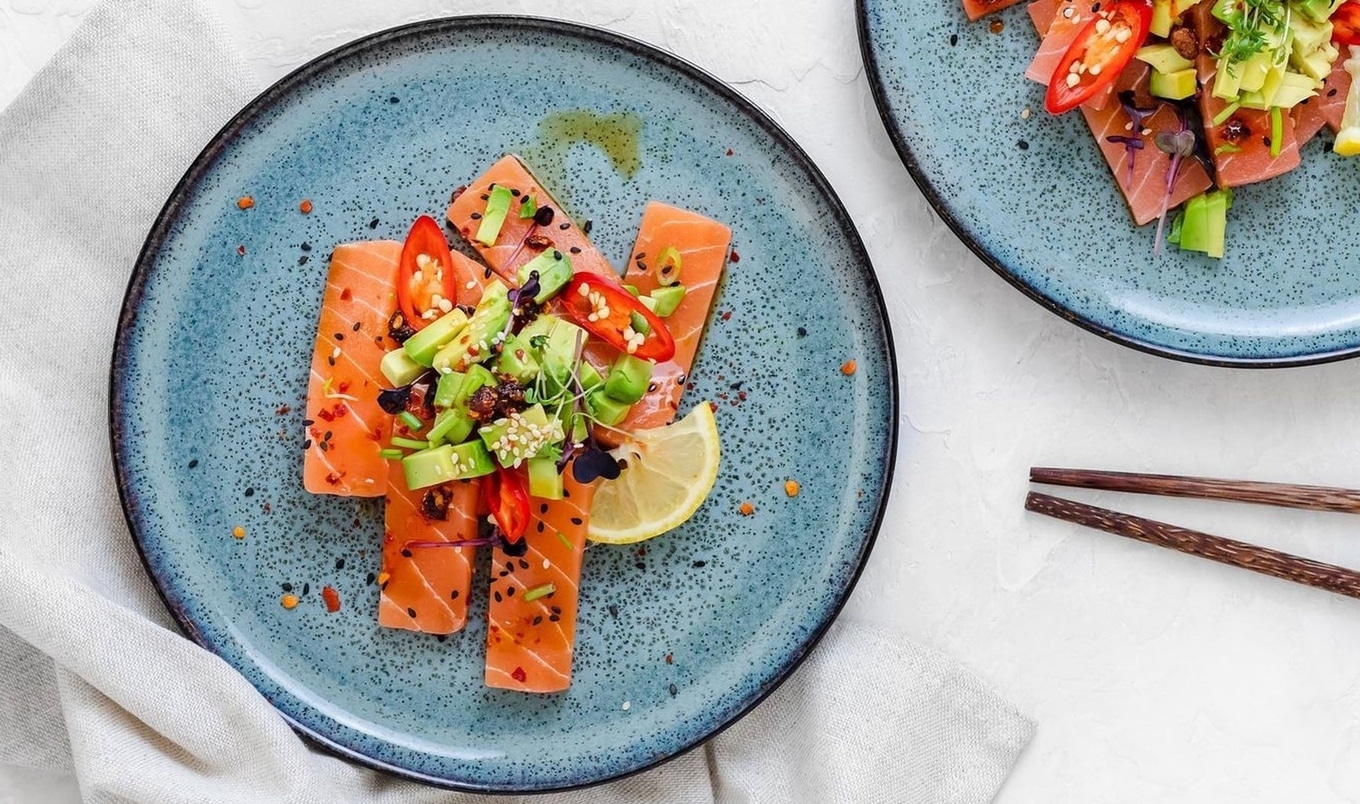 Vegan Finest Foods
Vegan Finest Foods
Vegan salmon products can be made with many different ingredients, including pea protein and soy protein for texture, as well as seaweed for that fishy flavor. There are also many whole food alternatives on the market, which use simple plant-based ingredients like carrots to create that distinct fishy texture.
Is vegan salmon healthy?
Salmon is often hailed as a healthy food, and that’s because it contains nutrients like omega-3, protein, and iron. But in the past, studies have suggested that fish also often contains something that’s likely not so healthy: traces of microplastics. Research is currently ongoing into how harmful this could be for humans.
A vegan diet is not free from microplastics (there are reports of microplastics in fruit and veg, for example), but many vegan seafood brands do claim to be microplastic-free.
Not all vegan salmon has the same level of nutrients, so how healthy it is depends on the ingredients used to make it. But most plant-based alternatives are a good source of protein, and many brands choose to add omega-3 and vitamins like B12 to their products.
How to make vegan salmon
To ensure your vegan salmon is nutritious and delicious, why not make it from home using whole-food plant-based ingredients, like papaya, carrots, or tofu? For inspiration, here are a few of our favorite vegan salmon recipes.
1 Papaya Salmon
For a convincing vegan alternative to raw salmon, try using chopped papaya, which is rolled in garlic, onion, dulse flakes, and dill. For a boost of nutrition, serve with a salad of kale, creamy avocado, and zesty clementines.
Get the recipe
2 Tofu salmon
Grilled salmon, rice, and veggies are a delicious go-to weeknight meal for many. But you can make it fish-free by swapping out the salmon for tofu marinated in ingredients like beet juice, miso, salt, turmeric, and torn nori sheets for that extra fishy flavor.
GET THE RECIPE
3 Carrot Salmon
Smoked salmon and cream cheese are the ultimate bagel filling. Avoid missing out on this delicious staple by replacing the salmon with carrots, which are baked, cooled, and then covered with a tasty nori and tamari-based sauce. Just make sure you leave enough time to prep, as the carrot will need to marinate for at least 24 hours.
Get the recipe
4 Jackfruit Salmon
For a nutritious, delicious rice bowl, swap the fishy topping for jackfruit, which has a similar flaky texture to canned salmon when shredded.
Get the recipe
5 Red Lentil Salmon
Make sure you have a blender to make this easy recipe, which binds together red lentils, carrots, and water to make the ultimate fish-free salmon. It’s quick, simple, low-cost, and delicious. What more could you want?
Get the recipe
Where to buy vegan salmon: 12 brands to try
If you don’t have the time, energy, or desire to whip up your own vegan salmon, that’s totally fair enough. And you don’t have to either, because, whether you prefer your salmon smoked, in sushi, or in filet form, there are many different alternatives on the market for you to choose from. Here are some of the best.
1 Vegan Zeastar
Owned by Vegan Finest Foods, Vegan ZeaStar is all about revolutionizing the plant-based seafood game. No longer do you have to miss salmon, shrimp, calamari, cod, or tuna, because Vegan ZeaStar offers convincing vegan alternatives for everything. Its No Salmon Sashimi is ideal for vegan sushi, or get creative and add it to a poke bowl.
find it here
2 Konscious Foods
If you’re craving a deliciously fishy poke bowl, but you’re really not in the mood to cook, plant-based seafood brand Konscious Foods has got your back. It offers two vegan ready-made poke bowl options, one with fish-free tuna and one with fish-free salmon. Plus, VegNews editors got a sneak peak at the brand’s new plant-based smoked salmon, which is set to launch later this year.
Find it here
3 Goldie Lox
San Francisco-based Goldie Lox is another plant-based brand that demonstrates you really don’t need a lot of ingredients to make delicious vegan smoked salmon. Like its website reads, it’s just “a bag of carrots and some good juju.”
find it here
4 Current Foods
If you’re looking for a quick and easy lunch that doesn’t negatively impact the ocean, Current Foods has you covered. Made with pea protein, its 100% Plant-Based Salmon Slices are ready to go straight out of the packet. Plus, it’s a source of vitamin B12, too.
find it here
5 Revo Foods
According to the team at Revo Foods, they love fish so much, they’re going to leave them in the ocean to swim about as they please. But that doesn’t mean the world has to miss out on seafood. Right now, it has three vegan salmon products: smoked, gravlax, and spread (so grab some bagels and get munching!).
find it here
6 Vivera
In 2018, Vivera wowed Brits with its ultra-realistic vegan steak product, which sold out in Tesco after just one week. Since then, the brand has been busy creating a whole range of delicious vegan alternatives, including a Plant Salmon Fillet, which can be baked or fried. It even contains added omega-3.
find it here
7 Good Catch
Founded by brothers and plant-based chef pioneers Derek and Chad Sarno, Good Catch is on a mission to make vegan, sustainable the norm. In January 2022, it made history when it launched the first-ever plant-based salmon burgers in the US, which are packed with 16 grams of protein.
find it here
8 Oshi
Last year, Israel-based food tech startup Oshi (which used to be known as Plantish) raised $2 million to bring its vegan, whole-cut salmon to restaurants. “Our vision is to be the world’s leading seafood brand, all without hurting a single fish,” CEO Ofek Ron said. It’s not widely available yet, but keep your eyes peeled as it’s planning a big launch.
FIND IT HERE
9 Lily’s Vegan Pantry
Lily’s Vegan Pantry used to be called May Wah Vegetarian Market and was founded in the 1990s. Back then, it was a small family business in New York City’s Chinatown, but over the decades, it has earned a reputation for producing some of the best, most realistic vegan meat products. Right now, it has a few different types of plant-based salmon, including salty slices and fillets.
find it here
10Veganz
Berlin-based Veganz is constantly breaking down barriers in the food industry. When it was founded back in the early 2010s, it was the first-ever vegan supermarket chain in Europe. Now, it offers more than 160 products in 26 different countries, including its seaweed and microalgae-based Veganz Salmon Style Slices (which are a source of omega-3).
find it here
11 Hooked Foods
In the words of the Swedish brand Hooked Foods, “it’s not fish, but fish…ish.” For a satisfyingly fishy experience, without harming any sea creatures, try its frozen Salmoonish pieces, which will liven up wraps, salads, pastas, and more.
find it here
12Save Da Sea
If you want to know the mission of this popular plant-based brand, the clue is in the name. Save Da Sea is, of course, all about protecting the oceans by making simple, minimally-processed, delicious seafood alternatives, like carrot-based Plant-Based Smoked Salmon.
find it here
For more on vegan seafood, read:
JUMP TO ... Latest News | Recipes | Guides | Health | Subscribe
Here at VegNews, we live and breathe the plant-based lifestyle, and only recommend products we feel make our lives amazing. Occasionally, articles may include shopping links where we might earn a small commission, but in no way does this effect the editorial integrity of VegNews.

